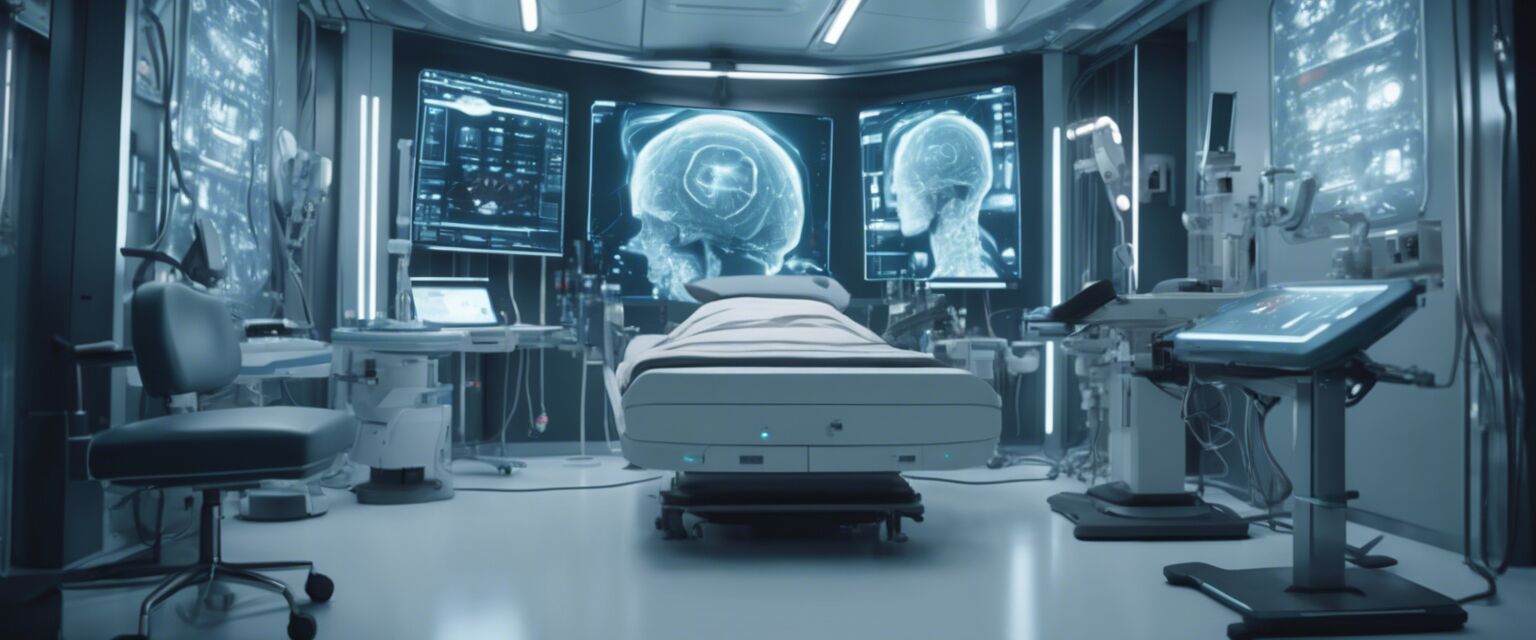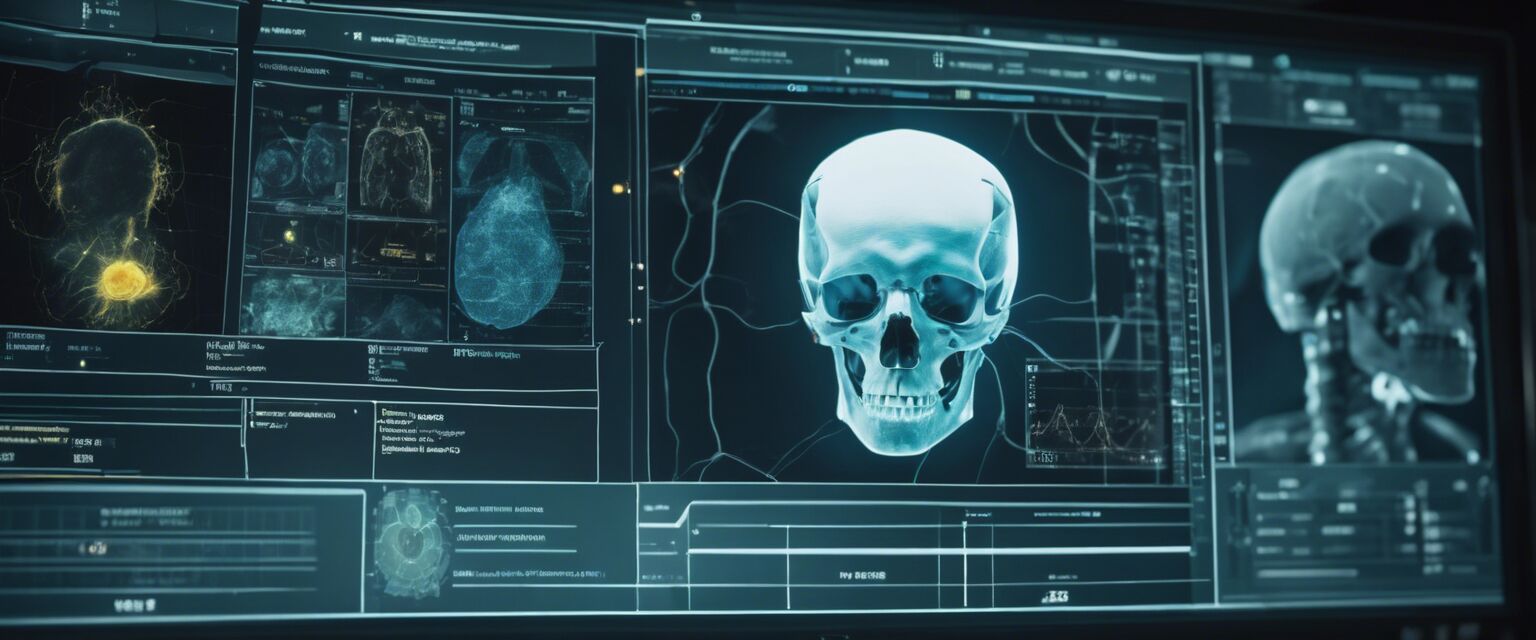
AI in Healthcare
- AI is transforming healthcare by enhancing diagnosis, treatment, and patient care.
- Case studies illustrate the practical applications of AI in various healthcare settings.
- AI tools are improving efficiency and accuracy in medical practices.
- Ethical considerations and data privacy are crucial in AI healthcare applications.
The integration of Artificial Intelligence (AI) into the healthcare sector is revolutionizing how medical professionals diagnose, treat, and manage patient care. With the ability to analyze vast amounts of data quickly and accurately, AI technologies are enhancing the efficiency of healthcare systems and improving patient outcomes. This article explores how AI is making waves in healthcare, supported by relevant case studies and examples.
How AI is Transforming Healthcare
AI is influencing various aspects of healthcare, from administrative tasks to complex surgical procedures. Its applications can be categorized into several key areas:
- Diagnostic tools: AI algorithms analyze medical images, lab results, and patient history to assist in diagnosis.
- Predictive analytics: AI systems predict disease outbreaks and patient deterioration, allowing for proactive management.
- Personalized medicine: AI analyzes genetic information to tailor treatments to individual patients.
- Administrative automation: AI helps streamline administrative tasks, reducing wait times and improving patient experiences.
Case Studies in AI Healthcare Applications
1. AI in Radiology
One of the most significant impacts of AI is seen in radiology, where image recognition algorithms analyze X-rays, MRIs, and CT scans. A case study involving a hospital network demonstrated that AI could identify tumors with an accuracy rate higher than human radiologists.

2. AI in Patient Monitoring
AI-powered patient monitoring systems collect and analyze real-time data from wearable devices. A prominent healthcare provider implemented an AI solution to monitor heart rate and other vital signs, leading to early detection of potential health issues.
3. AI in Drug Discovery
Pharmaceutical companies are leveraging AI to accelerate the drug discovery process. By analyzing biological data, AI can identify potential drug candidates faster than traditional methods. A notable case involved a biotech firm that reduced its drug discovery timeline by over 30% using AI techniques.
The Benefits of AI in Healthcare
| Benefit | Description |
|---|---|
| Enhanced accuracy | AI tools reduce human error in diagnostics and treatment recommendations. |
| Increased efficiency | AI automates routine tasks, allowing healthcare professionals to focus on patient care. |
| Cost reduction | AI can lower operational costs by streamlining processes and reducing the need for additional staff. |
| Data analysis | AI analyzes large datasets to uncover insights that would be difficult for humans to detect. |
Challenges and Considerations
While the benefits of AI in healthcare are promising, there are challenges that must be addressed:
- Data privacy: Protecting patient data is paramount, and AI systems must comply with regulations such as HIPAA.
- Bias in algorithms: AI systems trained on biased data may produce skewed results, potentially leading to healthcare disparities.
- Integration with existing systems: Seamless integration of AI tools with current healthcare infrastructures remains a challenge.
Pros
- Improved diagnostic accuracy
- Better patient outcomes through personalized treatment
- Streamlined administrative processes
- Faster drug discovery
Cons
- Concerns over data privacy and security
- Potential for algorithmic bias
- High costs of implementation and maintenance
- Resistance from healthcare professionals
The Future of AI in Healthcare
The future of AI in healthcare looks bright, with ongoing advancements in machine learning and data analysis. As technology continues to evolve, the potential applications of AI in healthcare will expand, offering new solutions to existing challenges. Hospitals and healthcare organizations must stay informed about emerging AI technologies and their implications to harness their full potential.
Conclusion
AI is undoubtedly transforming the healthcare landscape, offering innovative solutions that enhance patient care and streamline operations. By addressing the challenges associated with AI integration, the healthcare industry can fully leverage these technologies for a healthier future.
Tips for Integrating AI in Healthcare
- Start with pilot projects to test AI applications.
- Involve all stakeholders in the implementation process.
- Ensure compliance with data protection regulations.
- Provide training for healthcare professionals on how to use AI tools effectively.
Explore More
For more information on AI technology and its applications, check out our other articles:








